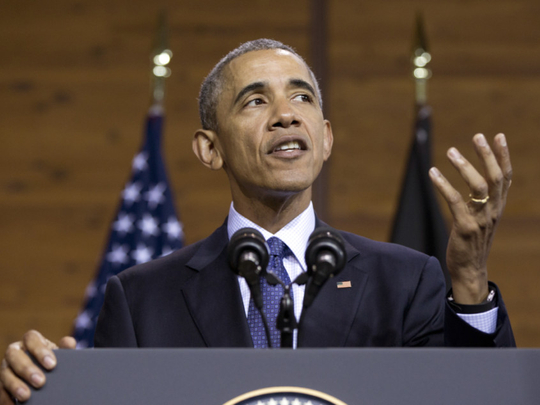
US presidents are used to provide guidance and advice to other countries, whether they are wanted or not. Possibly, this habit have happened due to the idea that they are responsible for the world. Maintaining the same trend, President Barack Obama has now advised Britain to stay in the European Union (EU). However, his advice has been criticised by some sections of the British society, who think that they are capable of judging the situation and arriving at a decision based on their own interests and priorities. While the British people are debating the pros and cons of Britain joining EU, there appears to be a definite view that the EU is not a natural union, but an artificial one without any emotional integration that is the primary requisite for any union.
EU has been around for a long time, however, when it comes to several issues, it has failed to take a unanimous decision due to a conflict of interests between the member states. For example, the EU has not been able to find a meaningful solution to tackle the current refugee crisis, and different member states have been criticising and accusing each other of acting on self interest without keeping the overall interest of union in mind.
Historically, several of European countries have fought against each other and such history cannot be forgotten in one stroke. Even after the formation of the union, there is no indication that member states have shed their nationalist feelings and developed a specific European one. While you can witness the German or French patriotism, can you spot European patriotism?
It is possible that the British think that by joining the EU, they would be giving up on their distinct identity as an independent nation with a proud culture and traditions. Perhaps, they might also argue that no member state has gained anything spectacular by joining the EU, so why should they?
Meanwhile, President Obama said that leaving the EU would leave the UK vulnerable in terms of tackling terrorism, the refugee crisis, economic uncertainties and climate change. However, that is something that many disagree with. But while giving such advice to the British, could it be that Obama was thinking of interests of the US rather than that of Britain? By joining the EU, the US would have to handle one entity rather than several, which would cause trouble when taking major decisions. He might be under the impression that influencing one union is easier and quicker than influencing several individual European countries, and that too, when the US needs their support. Time will tell...
— The reader is an Indian founder trustee of an NGO based in Chennai, India









